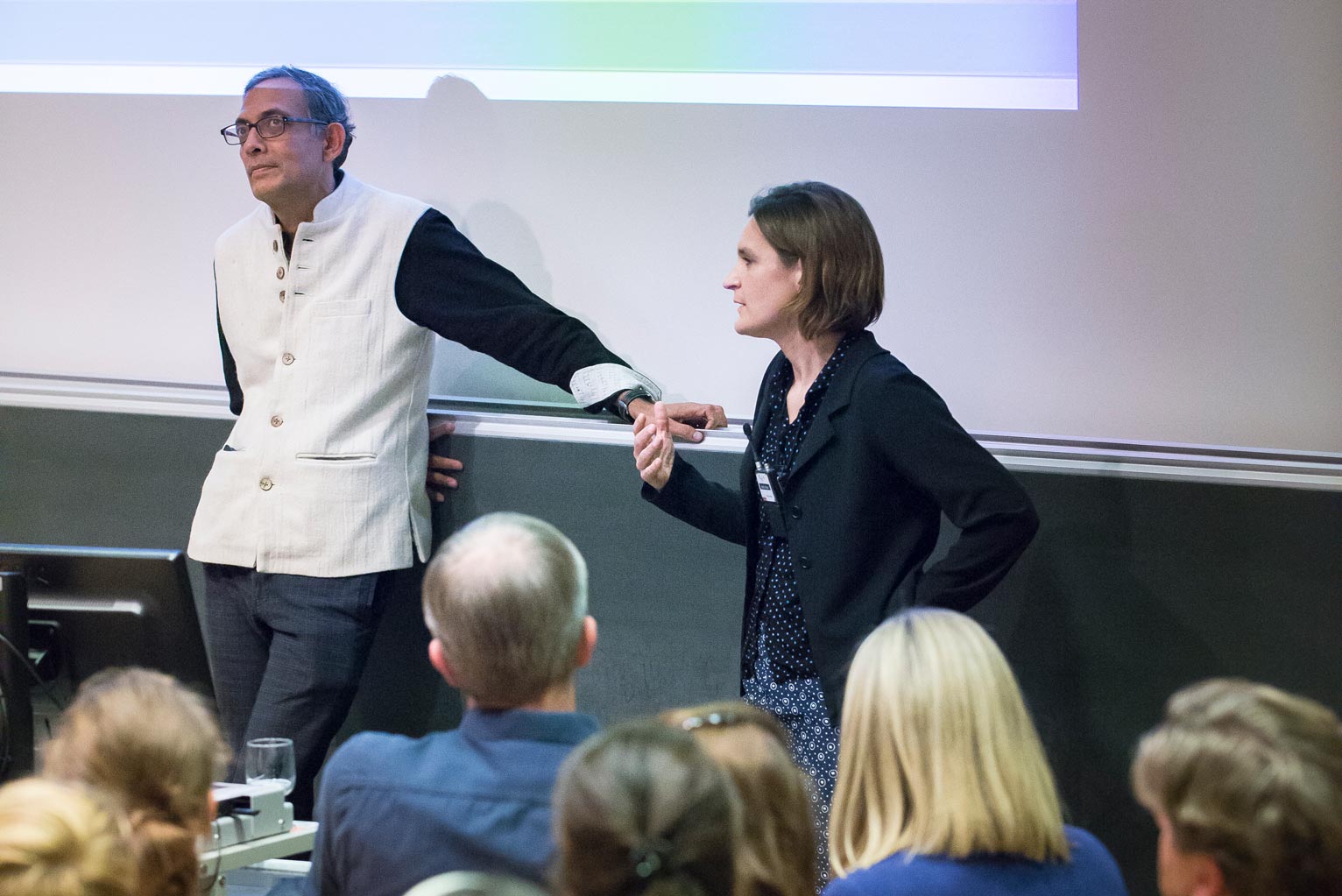Direkt zu
Downloads
Direkt zu
Downloads
by Maura Wyler
Their famous book Poor Economics: A radical rethinking of the way to fight global poverty, published in 2011, is radical in its rethinking of the economics of poverty, but also entirely practical in the suggestions it offers. On September 21, more than 400 people attended Banerjee’s and Duflo’s lecture where they shared new insights from numerous research projects conducted all around the world.
Perhaps the main message of Poor Economics is that the world constantly teaches us about how to do good economics, said Banerjee in his opening statement. But both the message and the messenger may not be the ones we expect. As economists, we often close our minds to the world, he continued. We do not listen to the messenger and we do not hear the messages that are out there.
To be surprised, you need to start with predictions. Therefore, Duflo and Banerjee went out on a limb on various issues based on their interpretation of the available evidence. Time showed that they got some right and some wrong. One example, where their assumption turned out to be wrong, was a project on food demand. They predicted that it would be difficult to improve nutrition through the traditional food subsidy because these programs end up as income subsidy programs for most households. Furthermore, the income elasticity of nutrition is quite low, even for very poor people facing significant undernutrition, Banerjee explained. However, through programs like asset and cash transfers in different countries, researchers have found income elasticities of demand for food that are higher than most previous non-experimental estimates. It appears that, as poor people get more money, they do eat more, sometimes even more than proportionally.
Professor Banerjee presented another example where they did a project on microcredits. In this case, most Opinionsof their assumptions turned out to be right. Contrary to the popular belief that microcredits are the “miracle of microfinance,” Banerjee and Duflo predicted that – with or without microfinance – most people would not voluntarily adopt the entrepreneurship route out of poverty. Many studies and meta-analyses confirmed their assumption that microfinance mostly pays for consumption and does not make the poor any richer. This finding was not well received by the advocates of microcredits, even though Banerjee and Duflo tried to make clear that the concept is not useless in general, but only of use to a small group of people with entrepreneurial disposition.
Esther Duflo continued by asking her fellow economists to be more like plumbers. By plumbing, she refers to the details of public policy – not necessarily guided by deep principle – that are often ignored both by academics and by policy makers and left to “technicians.” These details are exactly what policy makers need and lack in guidance for the implementation of policy measurements. Thus, it is exactly what researchers should focus on, she concluded.
by Maura Wyler
Their famous book Poor Economics: A radical rethinking of the way to fight global poverty, published in 2011, is radical in its rethinking of the economics of poverty, but also entirely practical in the suggestions it offers. On September 21, more than 400 people attended Banerjee’s and Duflo’s lecture where they shared new insights from numerous research projects conducted all around the world.
